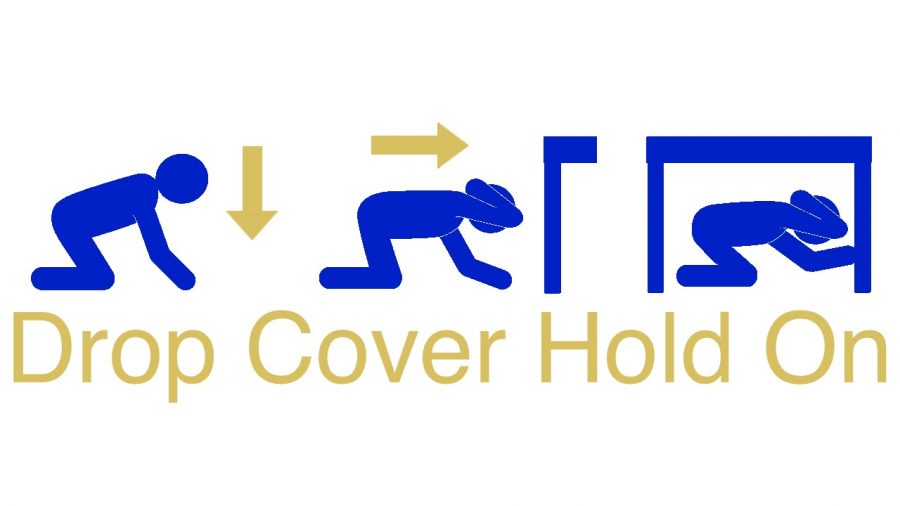Our Groundbreaking Tremors
December 5, 2019
Imagine: you are sitting in class, and the announcements turn on declaring an earthquake drill. What do you do?
Drop, cover and hold on. Stop what you are doing and drop to the floor. This helps with your balance so you can get to a safe location faster. Cover your head. Your head is the part of your body you should protect the most. Hold on and wait for the earthquake to stop. Do not move until you are sure the earthquake is over and there is no danger of falling debris.
Some might think that an earthquake drill is a waste of time or a way to get out of doing class work. It’s not wrong to think like that. Tracy rarely gets earthquakes, in fact, it’s mainly tremors that most people don’t even feel. However, that doesn’t mean you shouldn’t take the earthquake drills seriously. It’s better to be prepared than dead.
Our school emergency procedures were made by the school district. They put a lot of thought into students’ safety and chose the best possible protocol. At school, it’s simple: climb underneath the desks and protect your head. It may be cramped, but that does not mean you should stick your legs out. In a real earthquake, objects will fall and if your legs are not protected, you might lose them. So next time, and try to find a comfortable position where you can protect your whole body.
Earthquakes don’t always happen during school. You could be anywhere: your house, the mall, the park, somewhere not in Tracy; the possibilities are endless. There are different safety procedures for different locations. If you want to know more, the internet is readily available for your questions.
Assistant Principal Holly Harmsen shares her experience with an earthquake,“When I was in sixth grade, in elementary school, there was a really big earthquake, so we practiced the drills so we knew what to do with students, teachers knew what to do and we were safe, but it was pretty dramatic…things were falling, … glass was breaking so yeah I was scared.”
According to the Los Angeles Times article written by Ron-Gong Lin, Lucy Jones, a seismologist (earth scientists who study seismic waves in geological materials) says, “You’re about as likely to be shot by a toddler than die in an earthquake.” Even though the chances of dying are low, it doesn’t make you invincible.
Earthquakes can be big and dramatic, or a small tremor no one notices. Either way, you have to be careful of the falling debris. Let’s keep those odds of dying low and take our earthquake drills seriously.

